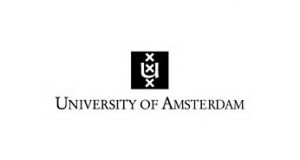Global Cultures of Contestation

Global Cultures of Contestation
Amsterdam, The Netherlands, 15–16 October 2015
From the popular uprisings in the Middle East and North Africa in early 2011, through the Spanish indignados, the Occupy movement and the Gezi Park protests, to the Umbrella movement in Hong Kong and the New University / Rethink UvA in Amsterdam, over the past years different parts of the world have seen major forms of popular contestation. This conference organised by the Amsterdam Centre for Globalisation Studies examines this global wave of protest, characterised by the occupation of squares, streets and buildings – a diversity of tactics prominently involving online communication and emerging new political imaginaries. Particularly striking is that these protests have not been initiated or directed by traditional social movement organisations, but appear to be spontaneous political movements 'from below'. Yet, while these instances of popular contestation have been celebrated for their mobilisation, their creativity and their innovative use of social media, their long-term efficiency has been called into question. So far, this debate has primarily focused on the political and social consequences of the protests. For this conference, the organisers invite scholars from around the globe to expand the debate by critically reflecting on the cultural dimensions of contemporary forms of popular contestation.
The organisers are especially interested in research that examines emerging global cultures of contestation from one of the following perspectives:
- Reflecting on questions of mobility: how the protests challenge and transform cultural boundaries, as well as established understandings of security, belonging and home? And what form of mobility is implied in the global spread of these protests?
- How are issues of sustainability addressed? In what ways are the precarity of labour, ecological degradation and the preservation of objects of cultural and historical value put on the agenda? And to what extent are the protests themselves sustainable as effective forms of contestation?
- What are the aesthetics of contemporary protest movements? In this context, we welcome explorations of the global circulation and proliferation of new imaginaries (including their linguistic, visual and acoustic manifestations), as well as of how these new imaginaries challenge and/or reproduce dominant cultural regimes.
- What are the connective platforms that facilitate and structure today's protest communication and mobilisation? How do these platforms not only enable contestation, but also shape its focus and dynamics?
For more information, please contact a.maihoub@uva.nl
or visit
acgs.uva.nl/news-and-events/upcoming-events/item/global-cultures-of-contestation.html
Календар на настани
07 / 2024| пон | вто | сре | чет | пет | саб | нед |
|---|---|---|---|---|---|---|
| 1 | 2 | 3 | 4 | 5 | 6 | 7 |
| 8 | 9 | 10 | 11 | 12 | 13 | 14 |
| 15 | 16 | 17 | 18 | 19 | 20 | 21 |
| 22 | 23 | 24 | 25 | 26 | 27 | 28 |
| 29 | 30 | 31 | 1 | 2 | 3 | 4 |
- → CALL FOR PAPERS: International Transdisciplinary Conference Culture(s) in Sustainable Futures: theories, policies, practices
- → Call for Papers for the International Conference on Arts and Cultural Management (AIMAC) 2015
- → Call for Papers: Managing Space with Culture: Critical Approaches to the Use of Culture in Regional Governance
- → E-Learning Programs in Cultural Diplomacy: Professional Development Programs in Cultural Diplomacy
- → European conference DO I HAVE A RIGHT TO ART?
- → CALL FOR PAPERS: International Transdisciplinary Conference Culture(s) in Sustainable Futures: theories, policies, practices
- → Call for Papers for the International Conference on Arts and Cultural Management (AIMAC) 2015
- → Call for Papers: Managing Space with Culture: Critical Approaches to the Use of Culture in Regional Governance
- → E-Learning Programs in Cultural Diplomacy: Professional Development Programs in Cultural Diplomacy
- → European conference DO I HAVE A RIGHT TO ART?















Коментари